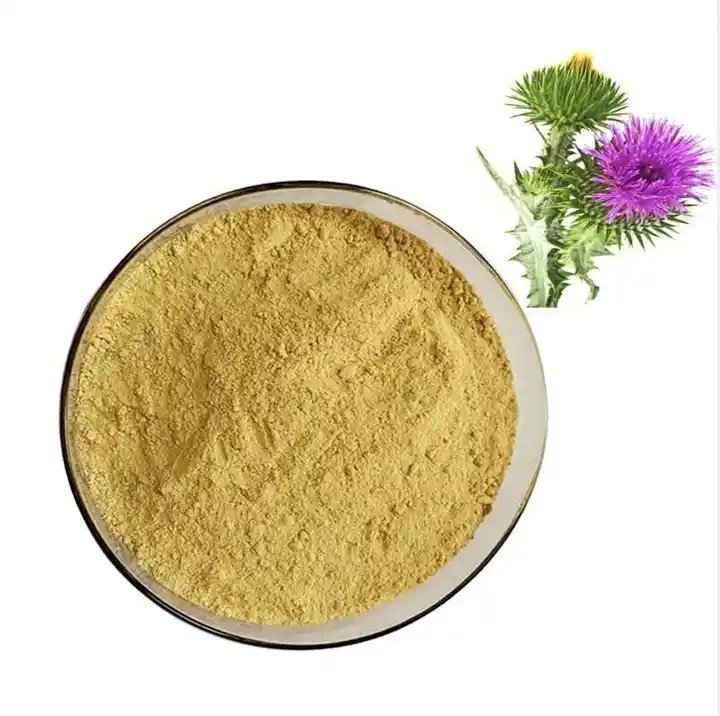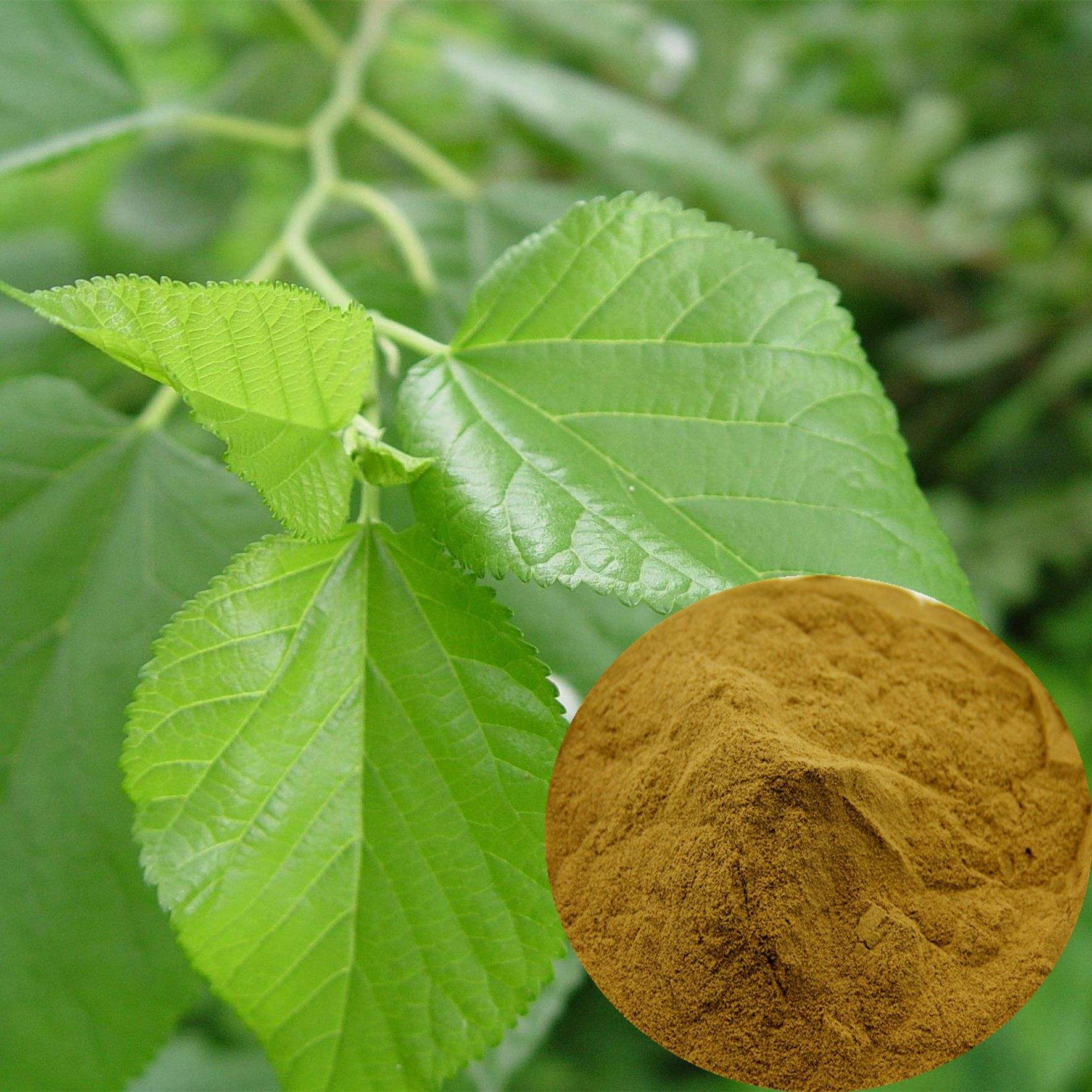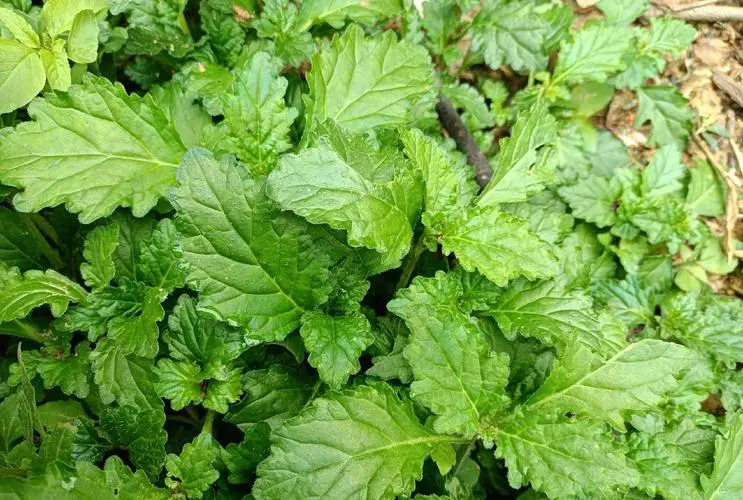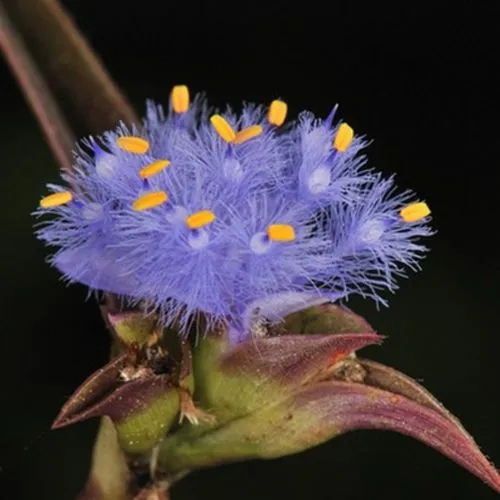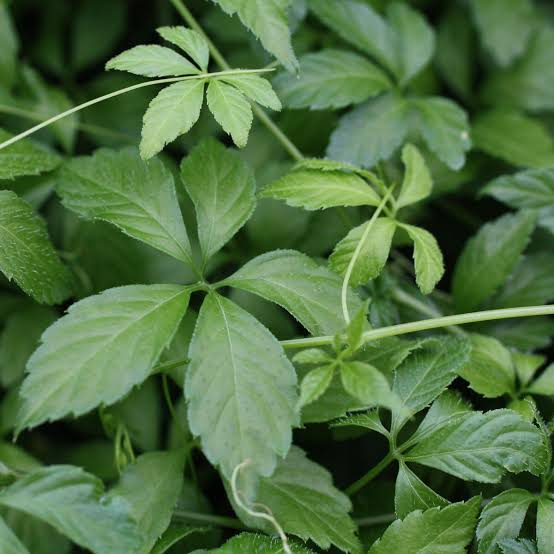Product description:
- Botanical Source: Derived from the seeds of Silybum marianum (L.) Gaertn., a plant commonly known as milk thistle.
- Active Ingredients: The main active components are flavonolignans, including silybin, silydianin, and silychristin. Silymarin is the standardized extract containing a minimum of 80% total flavonolignans, with silybin being the most abundant and pharmacologically active component.
- Appearance: Usually appears as a yellow to light brown powder, fine and free - flowing.
- Solubility: Sparingly soluble in water, but soluble in ethanol, methanol, and other organic solvents.
Specification:
|
Items
|
Standards
|
Method
|
|
silymarin
|
80%
|
UV
|
|
silybin+isosilybin
|
≥30%
|
HPLC
|
|
Appearance
|
Brown yellow fine powder
|
Visual
|
|
Extracted Part
|
whole Herb
|
/
|
|
Extract Solvent
|
Ethanol & Water
|
/
|
|
Particle Size
|
100% through 80 meshes
|
CP2020
|
|
Loss On Drying
|
NMT5.0%
|
CP2020
|
|
Ash
|
NMT5.0%
|
CP2020
|
|
Heavy Metals
|
NMT10ppm
|
ICP-MS
|
|
Pb
|
NMT3.0ppm
|
ICP-MS
|
|
As
|
NMT2.0ppm
|
ICP-MS
|
|
Cd
|
NMT1.0 ppm
|
ICP-MS
|
|
Hg
|
NMT0.1ppm
|
ICP-MS
|
|
Total Bacterial Count
|
NMT1000cfu/g
|
CP2020
|
|
Total Molds Count
|
NMT100cfu/g
|
CP2020
|
|
Salmonella
|
Negative
|
CP2020
|
|
E. Coli
|
Negative
|
CP2020
|
Application:
- Pharmaceutical Industry: Widely used in the production of drugs for the treatment of liver diseases, such as hepatitis, cirrhosis, and fatty liver. It can be formulated into tablets, capsules, or injectables.
- Health Supplements: Due to its hepatoprotective and antioxidant effects, it is a popular ingredient in dietary supplements. It is often taken by people who have a high - risk of liver damage, such as alcoholics, people taking certain medications, or those exposed to environmental toxins.
- Cosmetics: Silymarin extract is also used in some cosmetic products. Its antioxidant properties help protect the skin from oxidative damage caused by UV radiation and pollution, promoting healthy - looking skin.
Function
- Hepatoprotective: Silymarin extract has a strong hepatoprotective effect. It helps protect liver cells from damage caused by various toxins, such as alcohol, drugs, and environmental pollutants. It does this by enhancing the antioxidant defense system of the liver, scavenging free radicals, and preventing lipid peroxidation.
- Antioxidant: It acts as a potent antioxidant, neutralizing harmful free radicals in the body. This helps reduce oxidative stress and prevent damage to cells and tissues, not only in the liver but also in other organs.
- Anti - inflammatory: Silymarin has anti - inflammatory properties, which can help alleviate liver inflammation. It inhibits the production of inflammatory mediators and cytokines, thus reducing the inflammatory response in the liver.

